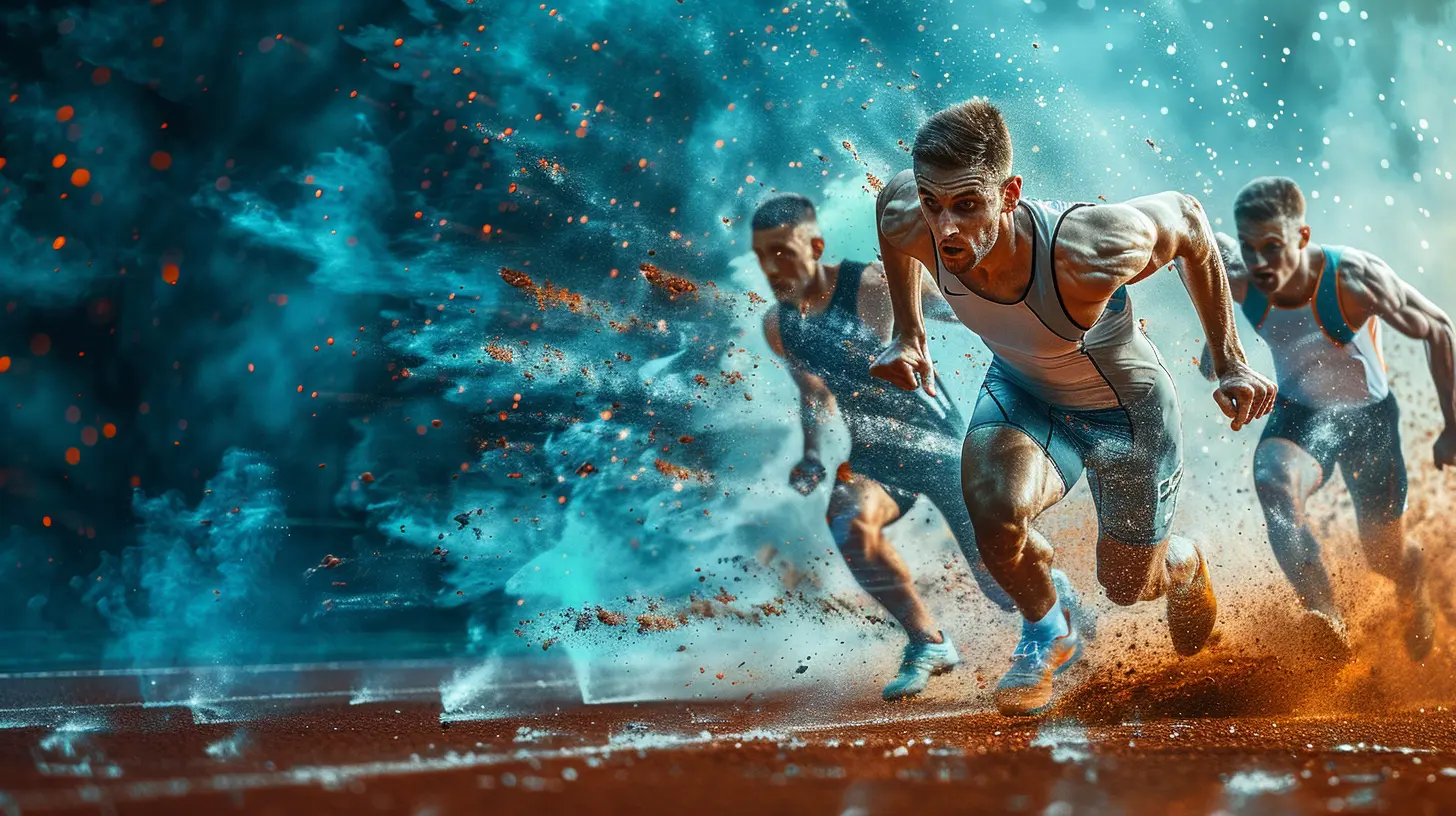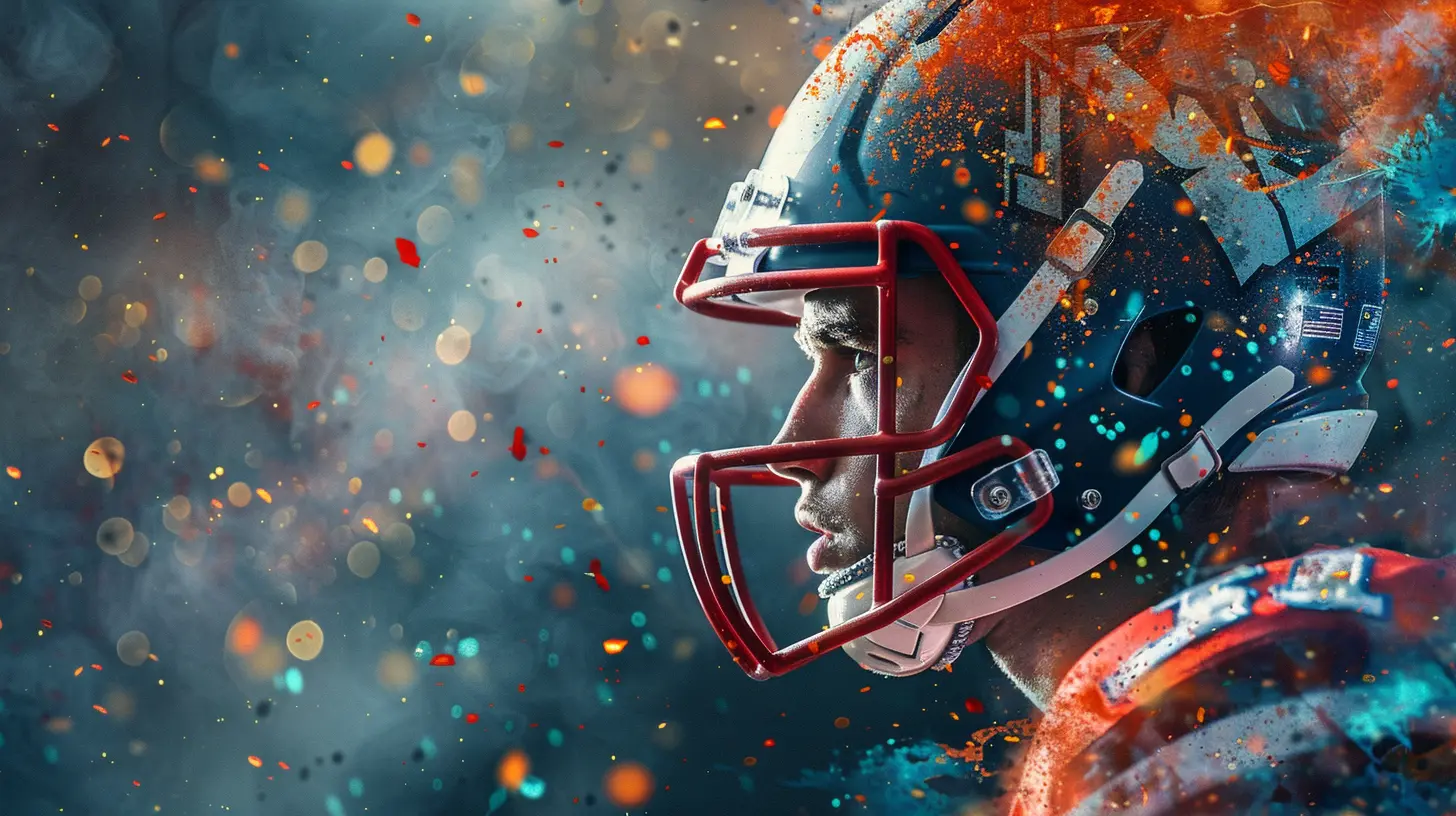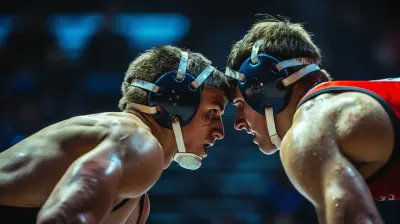How Athletes Can Benefit from a Growth Mindset
17 September 2025
Have you ever wondered what separates elite athletes from the rest? Is it raw talent? Natural ability? Or could it be something even more powerful—something hidden in their mindset?
Welcome to the world of the growth mindset, a secret weapon that can turn setbacks into comebacks and failures into stepping stones. If you're an athlete looking for an edge, buckle up—this might just change the way you approach your game forever.

What Is a Growth Mindset?
Before we dive into how athletes can benefit from a growth mindset, let’s break down what it really means.A growth mindset is the belief that abilities, intelligence, and talents are not fixed traits but rather qualities that can be developed through effort, perseverance, and learning. This concept, introduced by psychologist Carol Dweck, stands in contrast to a fixed mindset, which assumes abilities are static—you either have it, or you don’t.
Athletes with a growth mindset embrace challenges, see effort as essential, and view failures as opportunities to improve. And that? That’s a game-changer. 
Why A Growth Mindset is a Game-Changer for Athletes
1. Turning Setbacks Into Motivation
In sports, setbacks are inevitable. Injuries, losses, or poor performances can shake even the most confident athlete. But here’s the difference:- A fixed mindset athlete might think, “I’ll never be good enough.”
- A growth mindset athlete says, “What can I learn from this to come back stronger?”
Picture this—Michael Jordan, one of the greatest basketball players of all time, was cut from his high school team. Instead of giving up, he used that setback as fuel to train harder. The result? Six NBA championships and a legacy that still inspires millions.
2. Embracing the "Practice Makes Progress" Philosophy
People with a fixed mindset often believe that skill and talent are set in stone. But athletes who adopt a growth mindset understand that relentless effort leads to improvement.Think of Serena Williams. She wasn’t born a tennis legend—she became one through thousands of hours of practice, refining her skills bit by bit. The idea isn’t to be perfect overnight but to get better every single day. 
The Science Behind Growth Mindset in Sports
If you need proof that a growth mindset works, science has your back.When athletes continuously challenge themselves and embrace failure, their brains create new neural connections, strengthening their abilities. This process, known as neuroplasticity, allows athletes to adapt, refine techniques, and even overcome mental barriers.
In one study, researchers found that athletes who believed their abilities could improve with effort performed significantly better under pressure than those who thought talent was fixed. In short? Mindset isn’t just a cliché—it’s backed by science. 
How Athletes Can Develop a Growth Mindset
Alright, you’re sold. You want to develop a growth mindset and take your performance to the next level. But how do you actually do it?1. Reframe Failure as Feedback
Instead of seeing a loss or a bad game as proof of failure, start seeing it as valuable feedback. Ask yourself:- What went wrong?
- What can I do differently next time?
- What strengths did I still show?
Every failure holds a lesson. The smartest athletes find it, use it, and grow from it.
2. Use the Power of "Yet"
A simple shift in language can change everything. Instead of saying, “I’m not good at this,” try saying, “I’m not good at this… yet.”Adding "yet" reminds you that improvement is always possible. It shifts your mindset from “I can’t” to “I’m working toward it.”
3. Surround Yourself with Growth-Oriented People
Mindset is contagious. If you're constantly surrounded by people who complain, blame, or resist challenges, it's easy to fall into the same trap. But if you spend time with coaches, teammates, and friends who push themselves and focus on growth, you'll naturally absorb that mentality.4. Celebrate Effort, Not Just Results
Many athletes fall into the trap of only celebrating wins. But if you want to build a true growth mindset, start appreciating effort, resilience, and progress, not just trophies.Did you push yourself in practice? Did you improve in a small but meaningful way? These are victories, too.
Athletes Who Embody a Growth Mindset
Still not convinced? Let’s look at some athletes who built their success on a growth mindset:- Kobe Bryant: Known for his “Mamba Mentality,” Kobe wasn’t just about talent—he was about work ethic, relentless learning, and constant improvement.
- Cristiano Ronaldo: Despite early criticisms, Ronaldo trained obsessively to develop his skills, proving that success is built, not gifted.
- Simone Biles: The most decorated gymnast in history didn’t get there by luck—she embraced failure, adapted, and kept pushing her limits.
The common thread? They never stopped improving.
Overcoming Common Mindset Roadblocks
Even the most dedicated athletes sometimes struggle with self-doubt, frustration, or negativity. But here’s how you can stay mentally strong:1. Fear of Failure
- Instead of thinking, "What if I fail?", ask, "What if this is my chance to grow?"- Shift your mindset: Every setback is an opportunity to come back stronger.
2. Comparing Yourself to Others
- Focus on your own growth, not someone else’s journey.- Compete with past you, not just the players around you.
3. Impatience with Progress
- Improvement takes time—trust the process.- Even small gains add up to major breakthroughs over time.
Final Thoughts
A growth mindset isn’t just a nice idea—it’s a game-changer in sports. It can turn failures into opportunities, self-doubt into motivation, and setbacks into comebacks.So, the next time you hit a rough patch in your sport, remember this: your potential isn’t fixed—it’s up to you to unlock it.
Now, the real question is… are you ready to embrace the mindset that separates the great from the good?
all images in this post were generated using AI tools
Category:
Sports PsychologyAuthor:

Ruben McCloud
Discussion
rate this article
1 comments
Rook Lozano
In the arena of dreams, where sweat meets the will, A growth mindset ignites the fire to fulfill. With each setback, a lesson, a step toward the peak, Athletes rise like the dawn, bold and unique. Embrace the journey; the struggle is the art, For champions are forged in the depths of the heart.
October 10, 2025 at 12:01 PM

Ruben McCloud
Thank you for your inspiring words! They beautifully capture how a growth mindset transforms challenges into opportunities for athletes, fueling their journey toward excellence.


